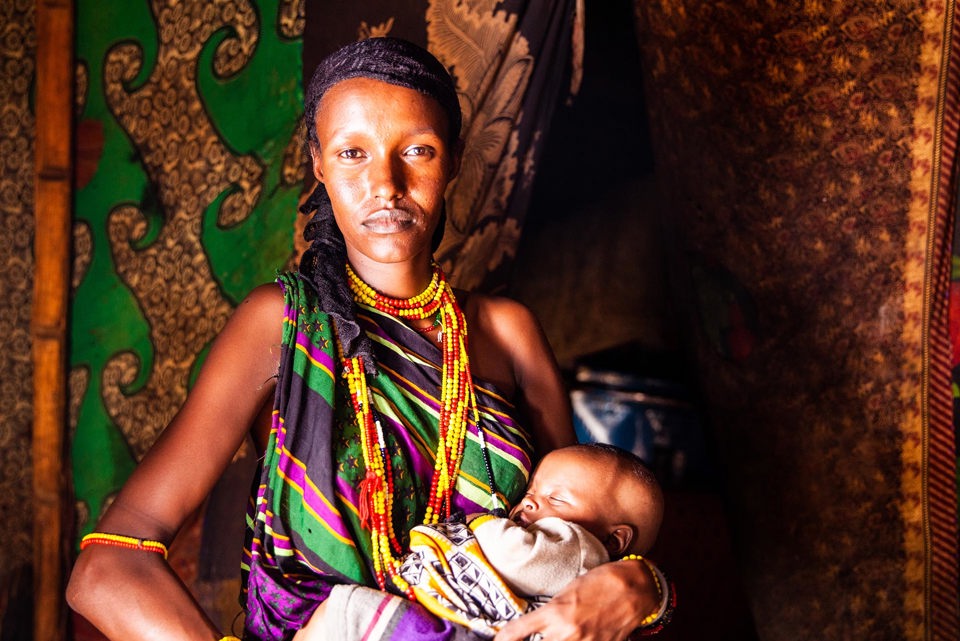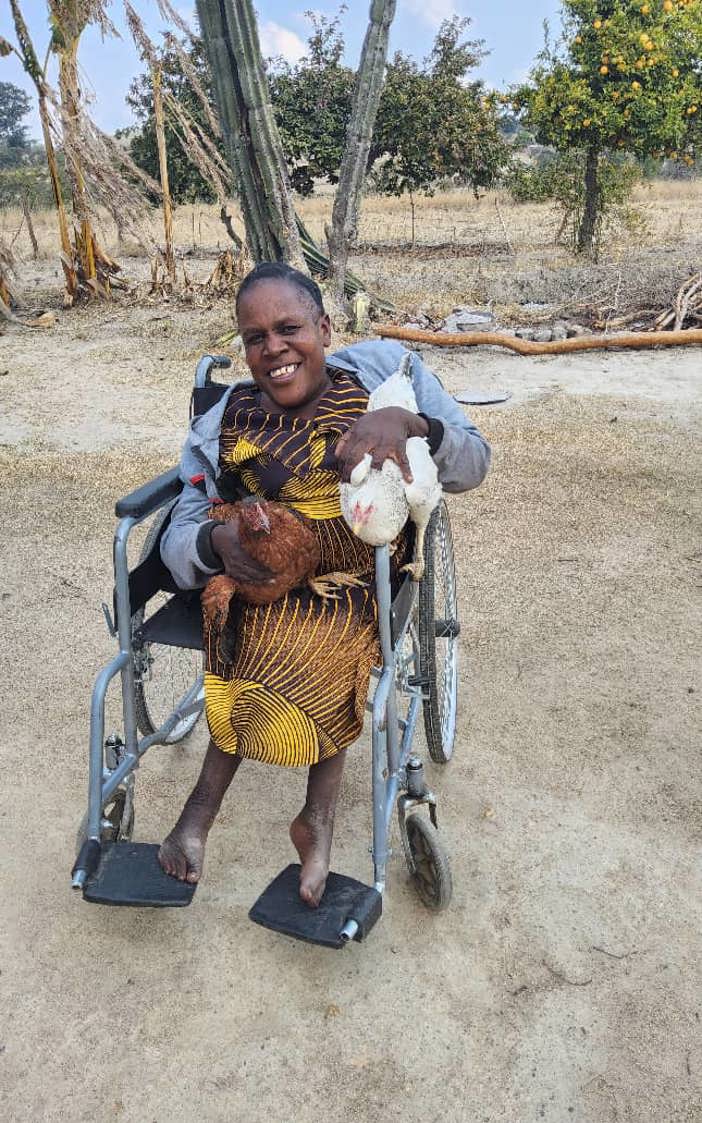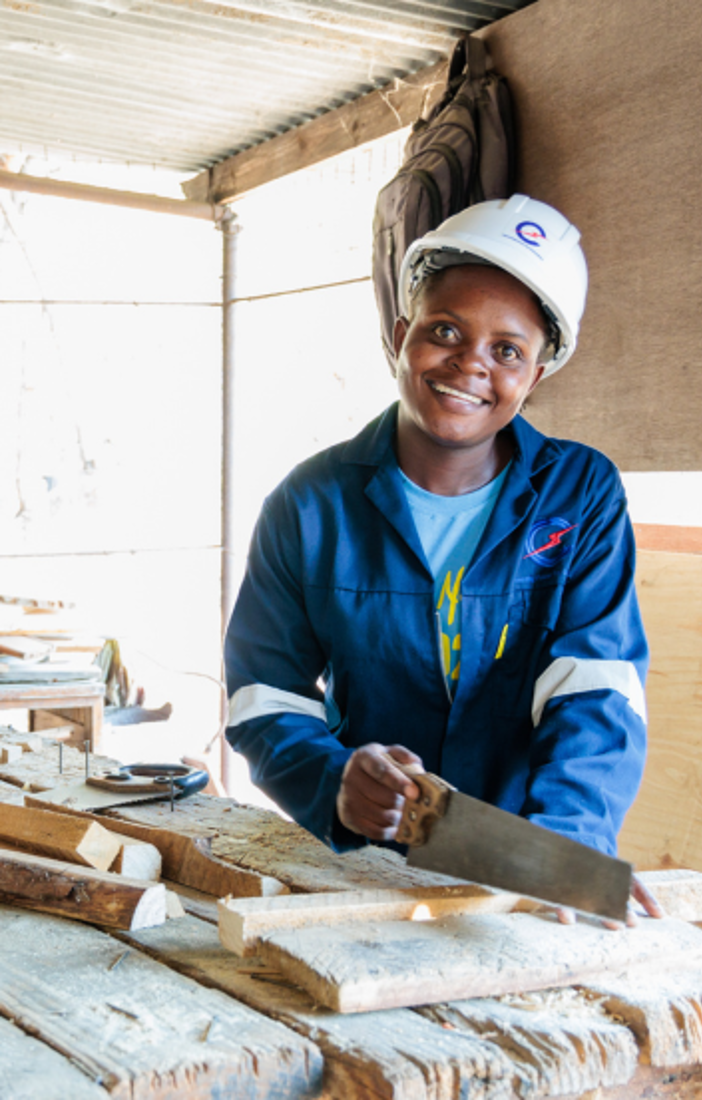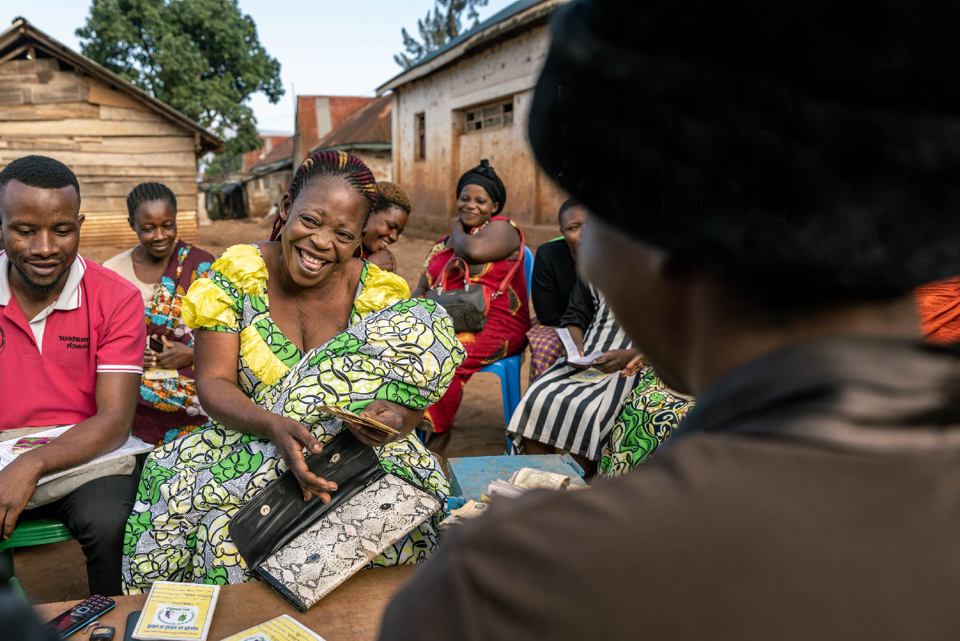In recent decades, Caritas Australia has evolved its programs to align with key learnings in the aid sector. Far from the welfare approach that pervaded the sector decades ago, Caritas Australia actively pursues evidence-based program models, with a focus on inclusion for those most vulnerable.
An overview of Africa – why your support matters
At over 40%, eastern and southern Africa has the largest percentage of the population facing extreme poverty (UN, 2022). On top of this, according to a United Nations Development Programme study in 2020, Africa continues to face significant development challenges, with many regions experiencing stagnation or underdevelopment.
Sadly, the lingering effects of the COVID-19 pandemic, increased conflict and displacement, and the burgeoning effects of climate change are leading to an increase in the poverty rate in Africa. An estimated 55 million people in Africa fell into extreme poverty in 2020 (ECA, UN, 2022). On top of this, in the Horn of Africa millions of children are suffering from severe malnutrition due to the worst drought in 70 years. This was followed by flooding in countries such as Ethiopia and Mozambique.
With the support of people like you, we can continue to mitigate the challenges that face Africa, and help lift some of the world’s most vulnerable out of poverty.

Talaso and her children, Ethiopia, face severe drought as a result of failed consecutive rainy seasons. Photo credit: Thom Flint/CAFOD
In the early stages of the most recent development model, asset-based community development, training initiatives emphasised a strength-based approach, engaging all partners in building resilient communities. Around 8 years ago, these changes began to yield noticeable outcomes in the programs we support. Gender equality, safeguarding, and inclusion of disability became more central to the way programs were mapped out – a shift driven by the recognition that vulnerable groups, particularly women, children, and people with disabilities required targeted support because they were more likely to be left out.
Speaking to Caritas Australia’s Africa programs team, the push for efficacy in the NGO sector in the past few decades has led to programs with much clearer and more localised goals.
Leaving no one out: inclusion as a core principle
Part of Caritas Australia’s core mission is to protect those most vulnerable and marginalised.
Disability: In many parts of Africa, people with disabilities and significant health conditions often face marginalisation and stigma within the communities they live. Caritas Australia has worked together with our partners to facilitate a shift in the communities they serve. In the past people with disabilities often received help from other family members, who could participate in programs. Now, Caritas Australia’s approach works with local partners to improve access to programs through mobility devices such as wheelchairs, crutches, learning braille. Our local partners also network with local disability advocates to ensure increased participation in programs.
Spotlight: Virginia from Zimbabwe
Since 2022, Virginia has actively engaged in Caritas Gweru's Integrated Community Development Program. Prior to joining the project, Virginia faced significant challenges due to her disability, severely impacting her quality of life. Without access to essential resources like a wheelchair and proper sanitation facilities, as well as lacking income-generating opportunities, her marginalisation was resulting in a lower quality of life.
However, thanks to the support from our partners, Caritas Gweru, she received a wheelchair and wheelchair-accessible toilets, ensuring Virginia's safety and dignity. She was also provided with chickens, which provide a source of food and income generation by selling eggs and offspring. Recently she was also provided with a small well and water pump closer to her home. Virginia has become an advocate for Caritas within her community, encouraging others to participate in the program.
With your support, Caritas Australia is able to provide basic resources to people like Virginia, so that they can contribute to their local economies, and break the cycle of poverty.

Virginia is thrilled to take care of her new chickens with a wheelchair provided by our partners, Caritas Gweru. Photo credit: Sister Ivy Khoury.
Gender: In many parts of sub-Saharan Africa, women are expected to take on traditional gender roles, experience early and high rates of pregnancy, and experience high rates of gender-based violence in many areas. Overall your support has helped 17 development programs across Africa, reaching more than 45,500 girls and women.
Youth: To break the cycle of poverty, we encourage partners to look at youth participation as a key focus. Barriers to education, child labour, lack of birth certificates, and poverty are all challenges for many young people across the sub-Saharan African countries we work in. Providing opportunities and training in schooling and vocational studies, as well as starter packs for young people to form careers with their skills are some of the ways our partners are addressing this.
Spotlight: Memory from Malawi
Memory, who was featured in our latest Project Compassion, comes from a rural farming family. Despite the financial challenges her family faced, she was determined to get a good education to pull her family’s future out of the cycle of poverty.
“Many women in my community drop out of school because they can’t afford school fees, which leads to early marriage and early pregnancy and more poverty,” Memory said.
Our partners, the Catholic Development Commission in Malawi (CADECOM), supported Memory’s tertiary carpentry training, so that she could become the first female carpenter in her village. Now, Memory works as a carpenter and hopes one day to start her own carpentry business. In Malawi, CADECOM uses a strength-based and asset-based approach (SBA and ABCD) working with people like Memory to utilise the skills and interests of participants.

Memory from Malawi received carpentry training from our partners, Catholic Development Commission in Malawi (CADECOM). Photo credit: Tim Lam.
The shift to Assets Based Community Development: a partnership approach
The assets-based community development (ABCD) model draws from the understanding that the communities that we serve have the strongest understanding of their own strengths This could be in the form of participating in infrastructure building, conservation farming, income generating opportunities and providing labour and time for improved access to water, and many other development activities.
Sister Ivy Khoury, a programs coordinator for Caritas Australia’s Africa and Pacific programs, explains: “Strength-based approach relies on community. Locals say ‘we can do this, we just need the funding,’ and eventually sometimes it becomes ‘we can do this, we no longer need the funding we are able to do it on our own.”
Instead of going into an area, and deciding what the community requires on their behalf, the ABCD approach requires programs coordinators and partners to actively listen and learn to community members to draw on their strengths and knowledge.
Instead of using a handout approach, the ABCD principles instead empower individuals, giving them the confidence and knowledge, tools, resources, or finances to upskill and negotiate with each other to achieve results. Along with this often comes a sense of mentorship.
Lulu Mitshabu, who is also Caritas Australia programs coordinator for Africa and the Pacific, reflects on what she has seen from the local communities she has worked with in countries such as the Democratic Republic of Congo.
“You become more focused, you start believing in yourself. That sense of localisation starts coming to you. That shift over time, when you bring the project in there – it is not welfare, it is what they can bring.”
In practical terms, the rollout of Caritas Australia’s programs falls into two areas – a community envisioning exercise that maps out the key goals of a program, and then Caritas Australia’s role is to support the implementation of that.
The ABCD approach is a model of partnership and deep trust that fosters sustainability. By putting communities and participants at the centre of the programs, they can use the generous support from our Australian community as a ‘hand-up’, instead of a ‘hand-out.’ Local economies build upon their own resources, allowing people within the community to train each other, and pooling local resources. This is how your donations are working towards lasting change within the communities we serve.

From her life as a former child soldier in the DRC, Rosalie is a now a business owner, a community leader and a role model for other ex-combatants seeking to readjust to civilian life. Photo: Arlette Bashizi/CAFOD
With the help of generous supporters like you, we are able to keep striving for a world that fights injustice and ends poverty, where nobody is left behind. Over the past few decades, global economic improvements have failed to uplift Africa as much as other parts of the world, and we all have a role to address that. Regardless of the uncertainties the future holds, one thing is for sure – it is imperative we all do what we can to alleviate suffering where we can. This is what Caritas Australia stands for, and we thank you for being part of this with us.

















